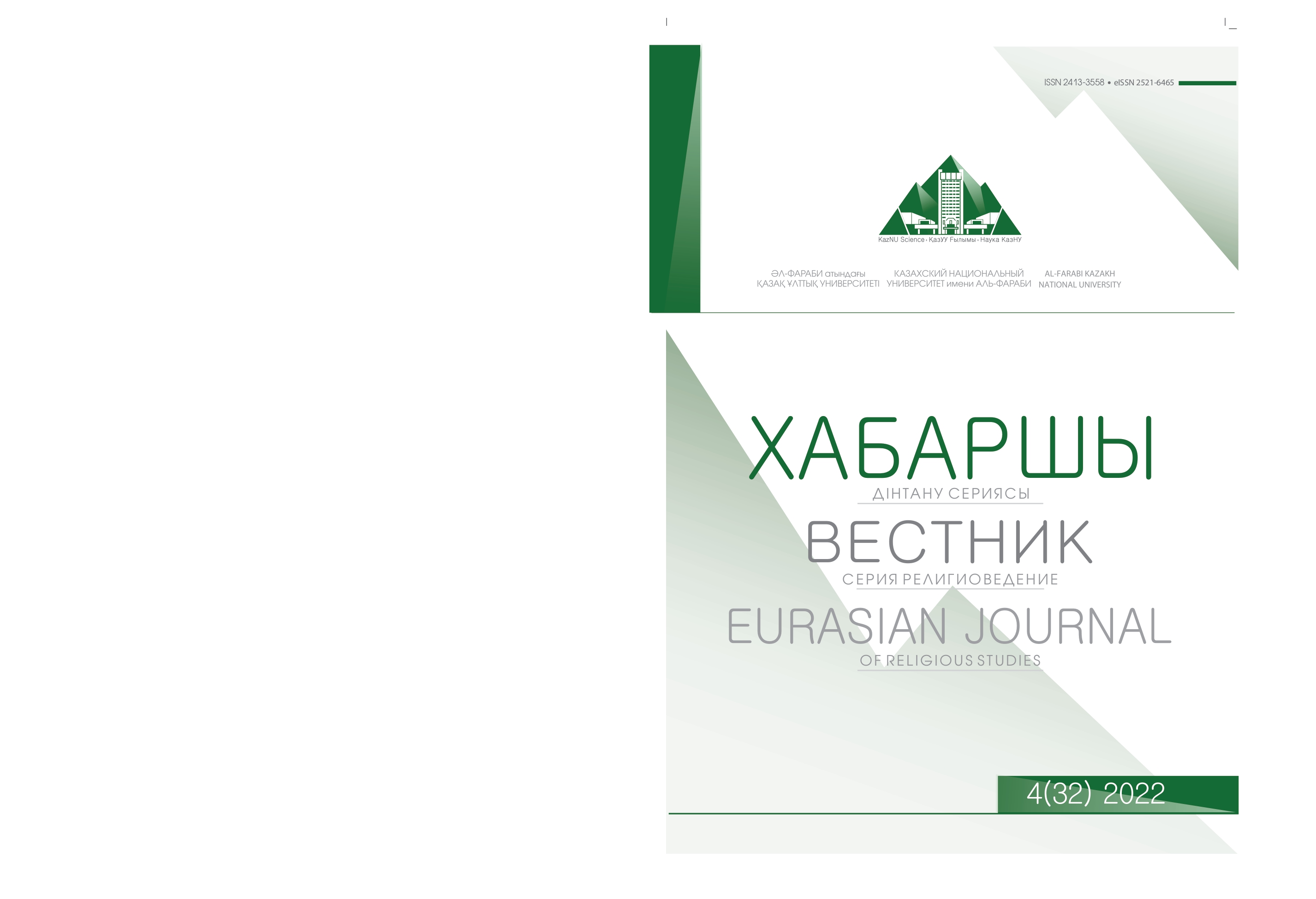Multiculturalism and National-Building Processes in Kazakhstan: Theoretical Perspective
DOI:
https://doi.org/10.26577//EJRS.2022.v32.i4.r10Keywords:
Multiculturalism, National-Building Processes, Central Asia, Kazakhstan, EthnicityAbstract
The complexity of multiculturalism has been central to European countries' political concerns since the 19th century. The era of globalisation creates another complex dimension of multiculturalism based on continuity and discontinuity. Multiculturalism also deals with the growing numbers of the geopolitical situation in the context of Eurasian integration. Most recently, in the wake of religious extremism in the world and the ensuing contention of superpowers like the U.S.A., China and Russia created another debate on multiculturalism. Most often, multiculturalism is addressed by questions of ethnicity, religion and nationality. However, it is also essential to consider cultural differences such as gender, age, disability, and other aspects of identity and social equality. The concept of multiculturalism comes into a complex and ambiguous relationship with the ideology of the national-building process. The issue of nationalism is associated with aspects of ethnic and national identity, particularly in the era of social transformation. This paper aims to elaborate on a theoretical conceptualisation of multiculturalism and the national building process in Kazakhstan and its prospects and challenges.
Keywords: Multiculturalism, National-Building processes, Central Asia, Kazakhstan, Ethnicity
References
Курганская В.Д., Дунаев В.Ю., Жусупов С.Е. (2001) Этнополитические процессы в современном Казахстане. – Алматы: ЦГИ. – 399.
References
Akbota & Gaur P. (2016), 'Kazakhstan-India Relation: Challenges and Prospectus', Astana. https://articlekz.com/en/article/21492
Amrekulov, N. (2000) Kazakhstan's Social and Political Development, Central Asia and the Caucasus, No 3: 131–146.
Collins, Kathleen (2006), Clan Politics and Regime Transition in Central Asia, New York: Cambridge University Press. – 376.
Craig Calhoun (1993) Nationalism and Ethnicity, a Review of, Sociology, Volume 19, 211-239.
Cummings, Sally N. (2005) Kazakhstan: Power and The Elite, London: I.B. Tauris Publishers. – 202.
Elena B. Grishaeva (2012) Multiculturalism as a Central Concept of Multiethnic and Polycultural Society Studies. Journal of Siberian Federal University. Humanities & Social Sciences 7 (2012 5) 916-922.
Kadyrzhanov, R. (1999), 'The ruling elite of Kazakhstan in the transition period, in Vladimir Shlapentokh, Christopher Vanderpool and Boris Doktorov (eds), The New Elite in Post-Communist Eastern Europe, College Station: Texas A&M University Press, pp. 144–61.
Karas, Dominika & Topolewska-Siedzik, Ewa & Negru-Subtirica, Oana. (2019). Contemporary views on personal identity formation. Studia Psychologica. 1. 5. 10.21697/sp.2018.18.1.01.
Kurganskaya V.D. and all (2001) Etnopoliticheskie processy v sovremennom Kazahstane [Ethnopolitical processes in modern Kazakhstan]. – Almaty: CSI. – 399. (in Russian)
Lee, Chaimun (2002) The Applicability of Sociological Theories to Ethnic Conflicts in Central Asia: The Case of Kazakhstan International Area Studies Review, 5: 39.
Rogov I.I. & et al. (2019) Formation and Development of Present Statehood of Kazakhstan. – Nur-Sultan: RSE Foundation of the First President of the Republic of Kazakhstan. – 348.
Schatz E. (2000) 'Framing strategies and non-conflict in multi-ethnic Kazakhstan', Nationalism and Ethnic Politics 6(2) 2000, pp. 70–92.
Schatz, Edward (1999), 'Notes on the "dog that did not bark": eco-internationalism in late Soviet Kazakstan', Ethnic and Racial Studies 22(1), pp. 136–61.
Shirin, A. (1995) The Formation of Kazakh Identity: From Tribe to Nation-State. – London: RIIA. – 82.
Spengler, Robert N. III & et al. (2021), 'An Imagined Past?Nomadic Narratives in Central Asian Archaeology', Current Anthropology, volume 62 (3).
Tawat, Mahama (2018), 'The Divergent Convergence of Multiculturalism Policy in the Nordic Countries (1964- 2006). Immigration Size, Policy Diffusion and Path Dependency', Mim Working Paper Series 18: 5.
Tesi di Laurea (2012), 'Multiculturalism in Kazakhstan: Evolution of a Multi-ethnic Society and the Progress of an Effective Intercultural Communication', Master's degree program (ex D.M. 270/2004) in Comparative International Relations, Ca' Foscari University of Venice.
Therborn G. (2001), "Multicultural Societies" Sociologicheskoe obozrenie, 1(1), pp. 50-67.













